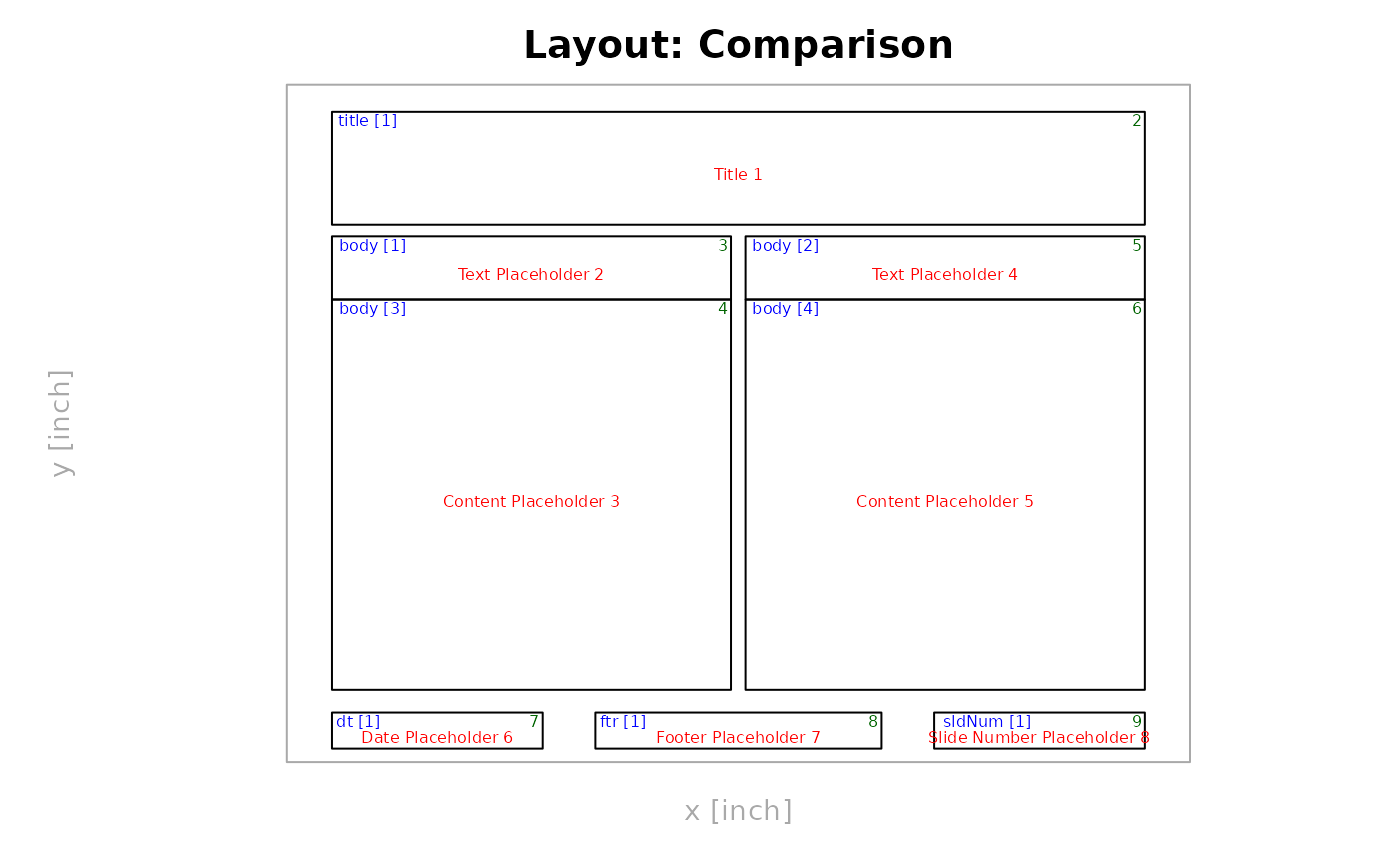Each placeholder has an id (a low integer value). The ids are unique across a single
layout. The function uses the placeholder's id to reference it. Different from a ph label,
the id is auto-assigned by PowerPoint and cannot be modified by the user.
Use layout_properties() (column id) and plot_layout_properties() (upper right
corner, in green) to find a placeholder's id.
Details
The location of the bounding box associated to a placeholder within a slide is specified with the left top coordinate, the width and the height. These are defined in inches:
- left
left coordinate of the bounding box
- top
top coordinate of the bounding box
- width
width of the bounding box
- height
height of the bounding box
In addition to these attributes, a label can be
associated with the shape. Shapes, text boxes, images and other objects
will be identified with that label in the Selection Pane of PowerPoint.
This label can then be reused by other functions such as ph_location_label().
It can be set with argument newlabel.
See also
Other functions for placeholder location:
ph_location(),
ph_location_fullsize(),
ph_location_label(),
ph_location_left(),
ph_location_right(),
ph_location_template(),
ph_location_type()
Examples
library(officer)
doc <- read_pptx()
doc <- add_slide(doc, "Comparison")
plot_layout_properties(doc, "Comparison")
 doc <- ph_with(doc, "The Title", location = ph_location_id(id = 2)) # title
doc <- ph_with(doc, "Left Header", location = ph_location_id(id = 3)) # left header
doc <- ph_with(doc, "Left Content", location = ph_location_id(id = 4)) # left content
doc <- ph_with(doc, "The Footer", location = ph_location_id(id = 8)) # footer
file <- tempfile(fileext = ".pptx")
print(doc, file)
## file.show(file) # may not work on your system
doc <- ph_with(doc, "The Title", location = ph_location_id(id = 2)) # title
doc <- ph_with(doc, "Left Header", location = ph_location_id(id = 3)) # left header
doc <- ph_with(doc, "Left Content", location = ph_location_id(id = 4)) # left content
doc <- ph_with(doc, "The Footer", location = ph_location_id(id = 8)) # footer
file <- tempfile(fileext = ".pptx")
print(doc, file)
## file.show(file) # may not work on your system
